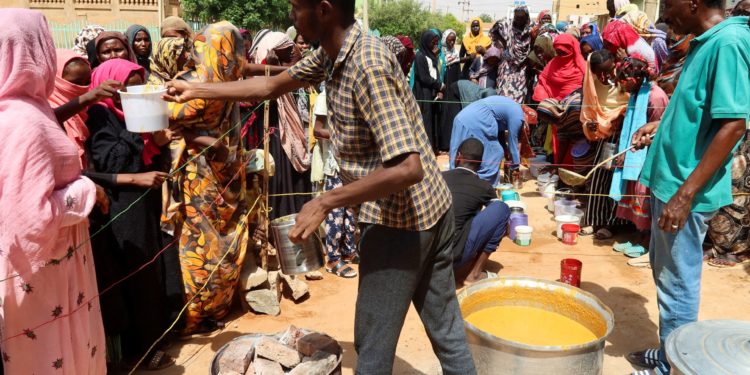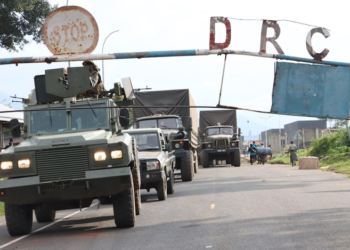By AL JAZEERA
The World Food Programme has called on Sudan’s warring sides to provide immediate security guarantees to deliver aid.
The United Nations food agency says it is receiving reports of people dying of starvation in Sudan and the number of hungry people has doubled over the past year as the ongoing war cuts civilians off from aid.
“The situation in Sudan today is nothing short of catastrophic,” said Eddie Rowe, the World Food Programme’s (WFP’s) Sudan representative and country director.
“Millions of people are impacted by the conflict. WFP has food in Sudan, but lack of humanitarian access and other unnecessary hurdles are slowing operations,” he said in a statement on Friday.
“Life-saving assistance is not reaching those who need it the most, and we are already receiving reports of people dying of starvation,” he added.
Since Sudan’s war began in April, nearly 18 million people across the country are facing acute hunger, and more than five million are experiencing emergency levels of hunger in areas worst affected by the conflict.
The WFP has called on Sudan’s warring factions – the army and the paramilitary Rapid Support Forces (RSF) – to provide immediate guarantees for the unimpeded delivery of relief.
“People are really struggling to afford a basic meal a day. … Those experiencing the highest levels of hunger are resorting to extreme coping mechanisms to put food on their plates, including selling everything that they own,” Leni Kinzli, head of communications at the WFP Sudan, told Al Jazeera from the Kenyan capital, Nairobi.
“The biggest challenge actually is that we are not able to deliver assistance across conflict lines. … We are not getting security guarantees and the approvals to move commodities freely,” she added.
Limited aid deliveries
The WFP has been able to deliver aid to just one in 10 people in the conflict areas, which include Khartoum, the western region of Darfur and El Gezira state, where the RSF recently advanced.
The agency added in a statement that it was trying to obtain security guarantees to restart operations in El Gezira, previously an aid hub that many had fled to from Khartoum.
Recently, aid deliveries in Sudan had been limited because 70 trucks were stuck in Port Sudan for more than two weeks and another 31 had been stuck in El Obeid for more than three months, the WFP said. Both cities are controlled by the army.
“For every single truck that we want to move from the port of Sudan elsewhere, we need to get stamps and signatures from different authorities, and this takes time for those clearances to be granted,” Kinzli said, calling on the international community to support the people of Sudan and galvanise political parties to ensure aid into the country is facilitated.
“Every single one of our trucks need to be on the road each and every day delivering food to the Sudanese people,” Rowe stressed.
The WFP said the number of hungry people in Sudan has more than doubled from a year ago. Nine months into a bloody war, nearly eight million people have also been forced from their homes, the UN said.
Efforts to negotiate an end to the fighting in Sudan have not yet yielded a breakthrough.








Discussion about this post